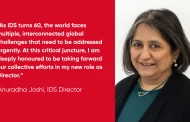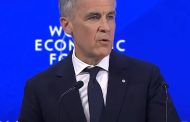An investment in a ‘career’ of dissidence can produce an explosive outcome because political parties, governments, caucuses and all such centres of power detest being openly criticised by insiders. Insiders who persist in that ‘career’ are usually given the dissident’s syrup. In a plain language, they are dealt with.
Usually, it starts by putting a label on the internal critics so as to make him or her unworthy of being seen to be committed to the cause. Once an image of such a person as a deviant, unreliable or unserious person is established, then harsher actions such as expulsion or denial of access can follow. In extreme cases, they are eliminated. Yet, that career path is the path Comrade Salihu Mohammed Lukman has followed in Nigeria’s current ruling party, the All Progressives Congress (APC). He has been doing it so consistently to the point that he is suspected as a plant in the APC by the opposition People’s Democratic Party (PDP).
However, Lukman has been smart enough to put together whatever he has been writing against the APC into a book. He has been smarter in bringing symbols of the dominant tendencies in the party to a book presentation that turned into a multivocal re-inscription of the party. The event took place December 19th, 2023 at the Yar’Adua Centre in Abuja. So, instead of ex-communication or any such harsh punishment reserved for internal critics in Africa in particular, the risk has basically turned into heroism for Lukman. He has gone away with the label of the ‘conscience of the party’ unless and until that is successfully challenged as in the nature of most discourses.

Exif_JPEG_420
How else does anyone interpret a book presentation attended by, one, the party’s National Chairman , Dr Umar Abdullahi Ganduje whose largeness of heart in attending the occasion got him a standing ovation from the audience. Ganduje was one of those mauled by Lukman at the point his candidature as party Chairman came into the agenda. Ganduje did not only attend the book presentation, he said he had read the book and found issues and counter-issues therein. In a continent where the slightest sign of criticism, not to talk of open criticism of his candidacy of the National Chairmanship of the APC, is met with brutal responses, Ganduje showed a meltedness that impressed even his harshest critics. Was it the Sardauna legacy or a sense of the other person imposed on him by his education (he is a PhD holder from the University of Ibadan and was supervised by the late Prof Alex Gboyega) or some other motif that explains Ganduje’s accommodationist gesture?
Adams Oshiomhole comes next. He used the occasion to hit back at Lukman for what he called dirty pig criticism that saw no merit in what he (Oshiomhole) was doing as National Chairman of the APC. Oshiomole’s belief that Lukman was enacting a script put together by Nasir el-Rufai and Kayode Fayemi, two ex-players in the Progressive Governors Forum, came clear and he went for their jugular: where are they today, he asked. He calls Dr. Kayode Fayemi a governor who had a resit. By that, he meant that Fayemi could not win his second term after his first term as governor of Ekiti State, contrasting Fayemi to himself who had no ‘resit’.
Interestingly, Oshiomhole knew Lukman much, much longer than Ganduje, Oshiomole and Lukman having worked together in the textile workers union before coming together into the Nigeria Labour Congress (NLC). Since meaning is relational, observers were asking why ‘Oshio Baba’ (Oshiomhole’s nickname) could not let bygones be bygones if Ganduje who barely knew Lukman, relatively speaking, could do so?
Kayode Fayemi is the third leg of the tendency punching that defined the book presentation. He anticipated what he got from Oshiomhole by saying he couldn’t possibly have been the one using Lukman to fight any battles in the APC: that Lukman criticised himself and Nasir el-Rufai too. He said Lukman inherited his inclination to a sense of critique from student activism, not from anybody’s backing, a point that Oshiomhole attested to in his recollections of his and Lukman’s time in the textile union without knowing he was doing so.
Unfortunately Fayemi had spoken and left before Oshiomhole stormed the venue, refusing to be stopped by the MC when he was taking too long on the podium. In other words, Fayemi implies that the belief that he was using Lukman to fight Oshiomhole as National Chairman of the APC (and a suspected field commander of the ‘Lion of Bourdillion’ who is now ‘Lion of Aso Rock’) is a poor deconstruction of the fact that he (Fayemi) single handedly appointed Lukman as the Director-General of the Progressive Governor’s Forum when he (Fayemi) was the chairperson of the forum.
Immediate past Vice-President Prof Yemi Osinbajo was represented at the book presentation by Dr. Laolu Akande, the thinly bearded acada from the University of Ibadan. From him too came a tendency signal in his description of Lukman as a man of courage and of Chief Bisi Akande as a “forthright fatherly figure of the progressives family”. For Osinbajo, the APC is a contrast to the PDP as far as the closest approximation to the party of the people is concerned and it must speak to higher standards, given the trajectory of the party. It would not be surprising if he gets a rebuttal the day after since Dr. Ganduje, for instance, was in the PDP initially.
Honourable Olawale Oshun, the leader of the Afenifere Renewal Group, was he Keynote speaker, presenting a conceptually pregnant intervention requiring a separate treatment later although his privileging of the 3G group as a definitive force in the struggle democracy is sure to elicit a counternarrative from more entrenched participants in that struggle. His text speaks to a tendency but not in the sense of tackling or being tackled by anyone. He was a generic combatant in terms of who is the politician and what is s/he supposed to do. He is critical of what we have today in Nigeria as politicians or political parties particularly in relation to the first generation of Nigerian leaders in the First Republic.

An angle on the audience
The last but the most present tendency at the book presentation as far as Intervention could see is Chief Bisi Akande. He was not only physically present, he was alert throughout the long but exciting session. Given his age, it would not have been surprising if he dozed off mid-session. But nothing of the sort happened. He took no more than three minutes or so each of the two times he spoke but making a profound statement in each case.
For instance, in his closing speech, he said somehow to Lukman but to everyone else too that the book was already on the table, whoever did not like it may go and write his own. He associated the effort with stimulating thought and provoking action and the author should not be threatened, disappointed or intimidated by the responses of critics to his attitude or direction. He seemed to suggest that most responses to most books are products of “I have never read the book but the book is bad” attitude and the responses are hardly worth being allowed to distract. It is interesting that none of the camps had anything negative to say about Chief Bisi Akande at the event.
Lukman who made a short statement at the occasion explained his protestations in the APC in terms of the sharp contrast between what earlier generations of Nigerians got and what the children of today are getting. In other words, his internal critic career and the dangers that comes with it are to be understood in terms of the case for a transformative sense of the transition Nigeria needs. He suggests a politics of keeping faith with the national democratic revolution he was part of as a former president of the National Association of Nigerian Students (NANS).
What his statement further suggests is a distinct tendency in the larger Nigerian politics – the radicals who moved from radical democratic or social movement politics in the 1980s into traditional elite politics. They have remained a distinct but ineffectual voice. One is thinking of the Chris Mammans, Chris Abashi, Dr. Otive Igbuzor, the late Yima Sen, Dr. Garba Abari, Adagbo Onoja, Prof Sylvester Odion Akhaine, Segun Maiyegun, Bamidele Opeyemi, Dr. Ogaga Ifowodo, Omoyele Sowore, Labaran Maku, Salihu Lukman and many more because an exhaustive list would only be possible with a more involving research. Surprisingly, Chris Mamman who worked with Atiku Abubakar for quite some time, has gone quiet. Chris Abashi died. Labaran Maku is gone into a cocoon for now. Lukman is having his fight in the APC. And the list goes on.
So, why do radicals in politics appear vulnerable to crashing somehow, as against the relative prosperity of those who have no higher standards which their politics must speak to? Why is it that it is the radicals who get into trouble in spite of the fact that they are the ones who raise issues?
For instance, speaking at the book presentation, Mrs Sharon Ekeazor argued the case for a Progressive Governance Institute for the APC. That is something like an ideological school which the APC doesn’t currently have in any functional sense and which is just imponderable. There lies a great idea which would be a Lukman contribution to the APC should it ever materialise. Yes, a Lukman contribution since his internal criticism and the chain of reactions to that path brought about Ekeazor’s suggestion.
Does the answer to this paradox lie in Oshiomhole’s advice to Lukman? He urged him to write less and consult more. For Oshiomhole, washing the dirty lines of the APC in the media by a Lukman is like sending an invitation to the PDP to come and help clean the APC.
It is probably not possible to cover everything that went on at the book presentation. Perhaps, a second report is required. Or the coverage of the event elsewhere would add up. It seems it would be an on-going jaw jawing for some time to come which would be good for the APC if it aspires to be taken seriously in the coming realignment of traditional and radical forces.




























